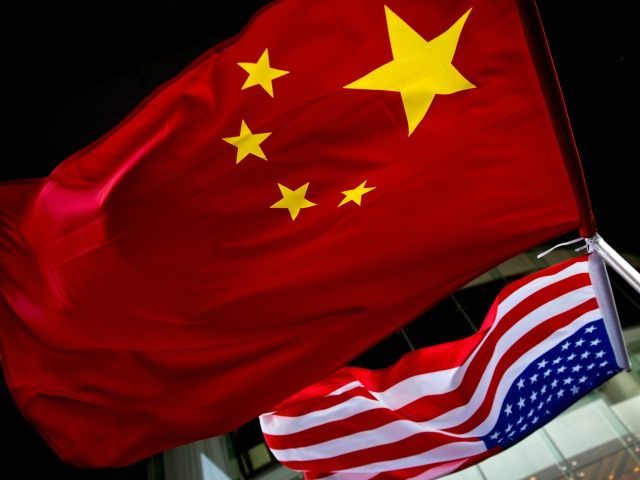China’s recent advances in quantum technologies, including the launch of a quantum satellite and the announcement of a $10 billion quantum computing center, have Western scientists concerned as to whether the United States and its allies will be able to match them in developments.
Quantum computing is the next big leap in technological development. Unlike binary computers, which rely on electricity and can therefore only store information using binary code, quantum computers can use particles that exist in what are known as “superpositions,” and can therefore “feel all the possibilities at once,” as Warner A. Miller explained in a speech at the Hudson Institute in Washington last week. What could take normal computers trillions of years to calculate, such as encrypted data, could be done in a matter of minutes or seconds by quantum computers — the leap is astronomical.
While full-size computers still remain theoretical, as many designs call for extremely cold conditions, early models have been made that prove the concept. Scientists once believed that the first computers would be decades away, but now believe they may, in fact, be seen in the next ten years. The potential applications of quantum computers could involve unjammable navigation systems, breaking enemy encryption, and creating quantum-based, super smart A.I.
China, in recent months, has demonstrated the great focus they are putting into developing quantum computers. In June, they announced that a satellite and ground station had communicated via entangled particles, at a distance of over 745 miles, a new record. Particles, in such a state, even when thousands of miles apart, will still affect each other when their position is changed. Currently, the US is not believed to be able to complete such an action. In a similar action, China created a quantum communication link between Shanghai and Beijing in September, the biggest such link in the world. China also announced in the same month a $10 billion research center in Hefei, with the aim of building a quantum computer that can decrypt anything within seconds.
The concerns echo the reaction of the West to the launching of the first Soviet satellites back in the 1950s. The issue is of such key importance to the United States government that currently, any advances in the field made by Americans are kept top secret. R. Paul Stimers, a lawyer at K&L Gates based out of Washington, said that “we don’t know exactly where the United States is. I fervently hope that a lot of this work is taking place in a classified setting… It is a race.”
The issue with China is not that their scientists are better, as Martin Laforest, a physicist at the Institute for Quantum Computing at the University of Waterloo in Ontario, was keen to point out, but that “when they say ‘we need a billion dollars to do this,’ bam, the money comes.” Christopher Monroe, a physicist at the University of Maryland, elaborated the point further:
To me, what is alarming is the level of coordination of what they’ve done… If it costs $20 billion, China will just do it without asking, and they’ll put an army together to do it. I don’t think any other government in the world is able to throw together something [so] fast.
At the moment in time, China is not believed to have a major advantage regarding the technology, and are still “some distance from that quantum supremacy threshold,” Arthur Herman, the head of the technology and defense program at the Hudson Institute said. However, Herman said that to succeed, the US would need a funding focus on the scale that was seen in the Manhattan Project, the famous program to produce the first atomic bomb during the Second World War.
Jack Hadfield is a student at the University of Warwick and a regular contributor to Breitbart Tech. You can like his page on Facebook and follow him on Twitter @JackHadders or on Gab @JH.

COMMENTS
Please let us know if you're having issues with commenting.